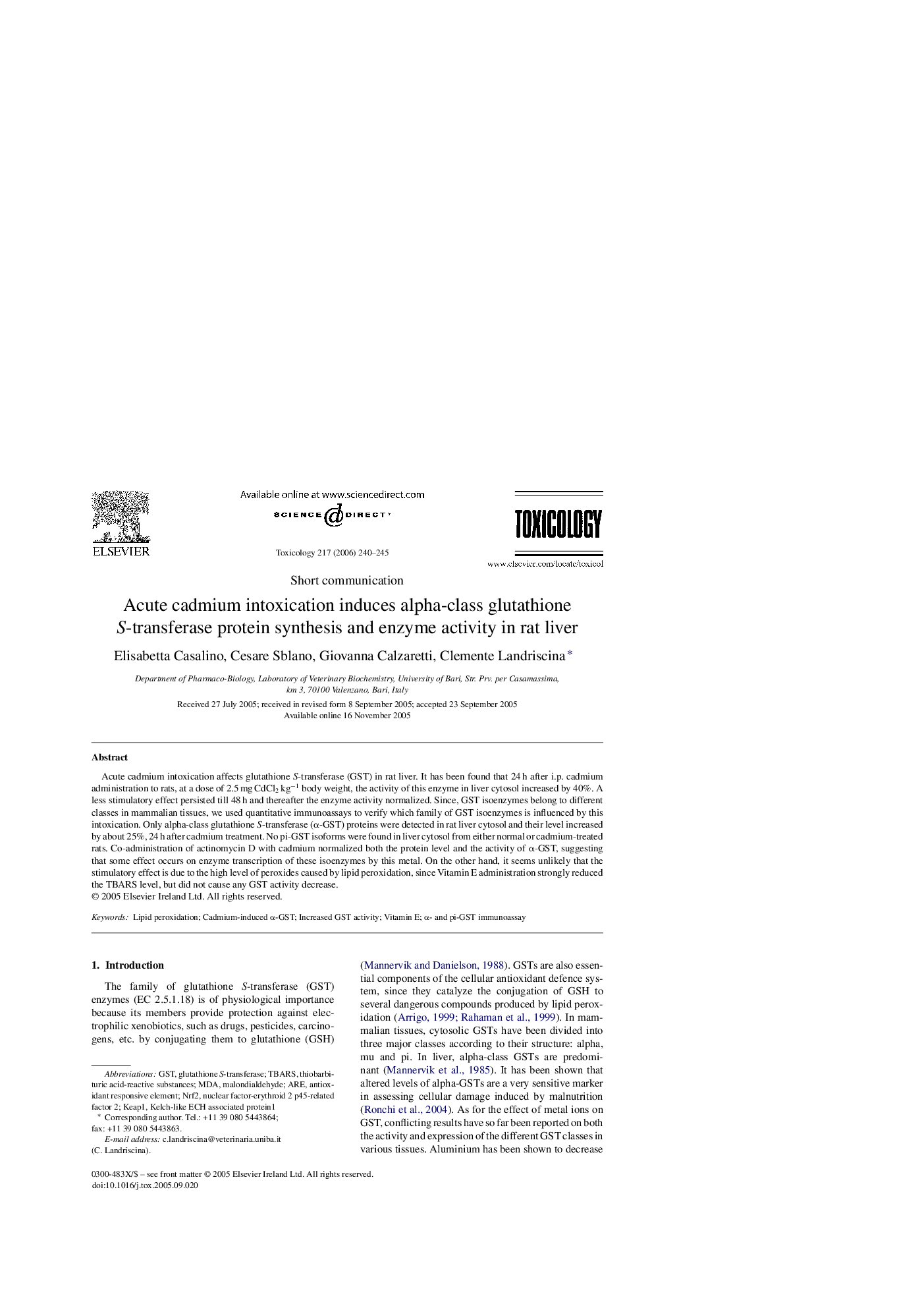| Article ID | Journal | Published Year | Pages | File Type |
|---|---|---|---|---|
| 2598017 | Toxicology | 2006 | 6 Pages |
Acute cadmium intoxication affects glutathione S-transferase (GST) in rat liver. It has been found that 24 h after i.p. cadmium administration to rats, at a dose of 2.5 mg CdCl2 kg−1 body weight, the activity of this enzyme in liver cytosol increased by 40%. A less stimulatory effect persisted till 48 h and thereafter the enzyme activity normalized. Since, GST isoenzymes belong to different classes in mammalian tissues, we used quantitative immunoassays to verify which family of GST isoenzymes is influenced by this intoxication. Only alpha-class glutathione S-transferase (α-GST) proteins were detected in rat liver cytosol and their level increased by about 25%, 24 h after cadmium treatment. No pi-GST isoforms were found in liver cytosol from either normal or cadmium-treated rats. Co-administration of actinomycin D with cadmium normalized both the protein level and the activity of α-GST, suggesting that some effect occurs on enzyme transcription of these isoenzymes by this metal. On the other hand, it seems unlikely that the stimulatory effect is due to the high level of peroxides caused by lipid peroxidation, since Vitamin E administration strongly reduced the TBARS level, but did not cause any GST activity decrease.
